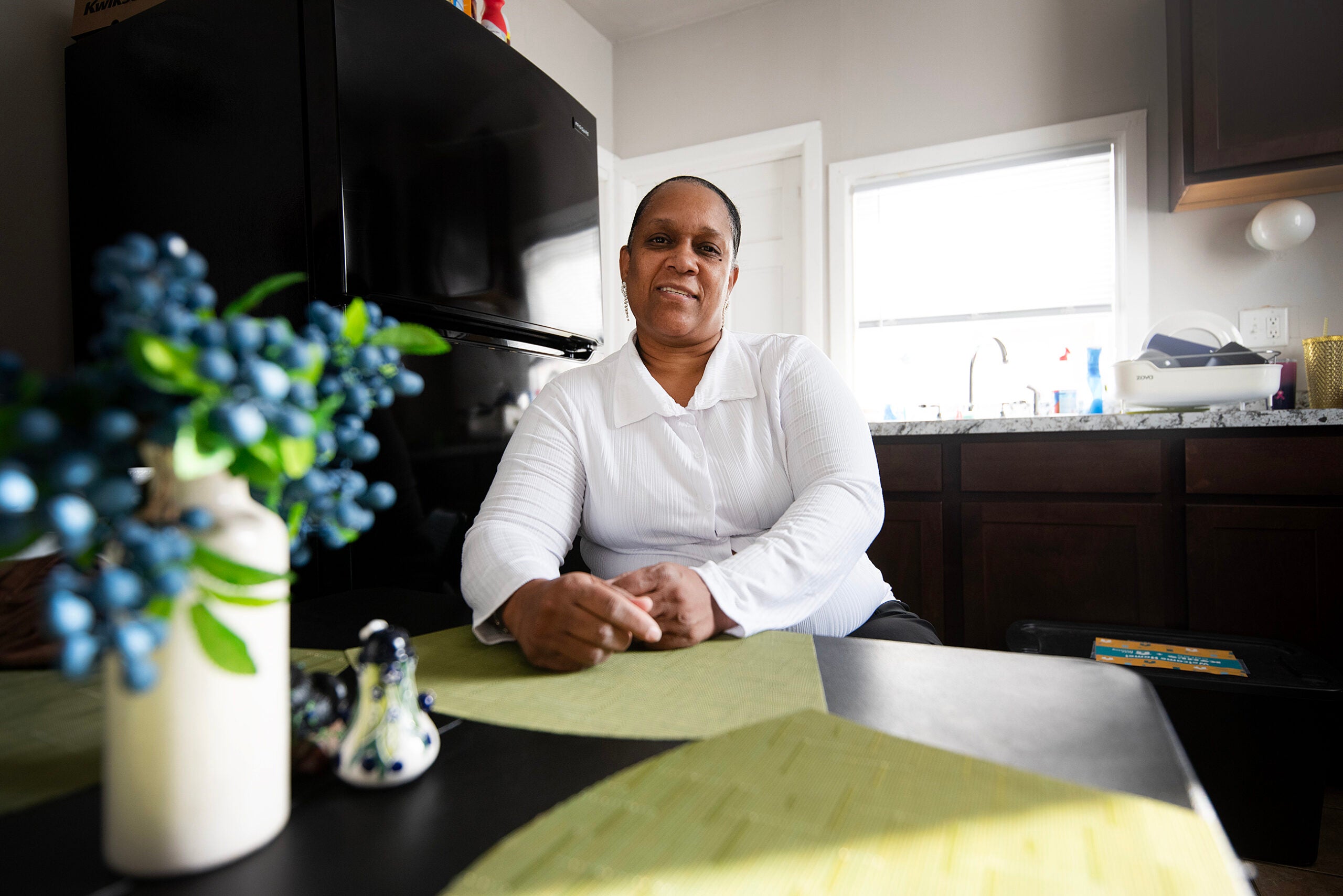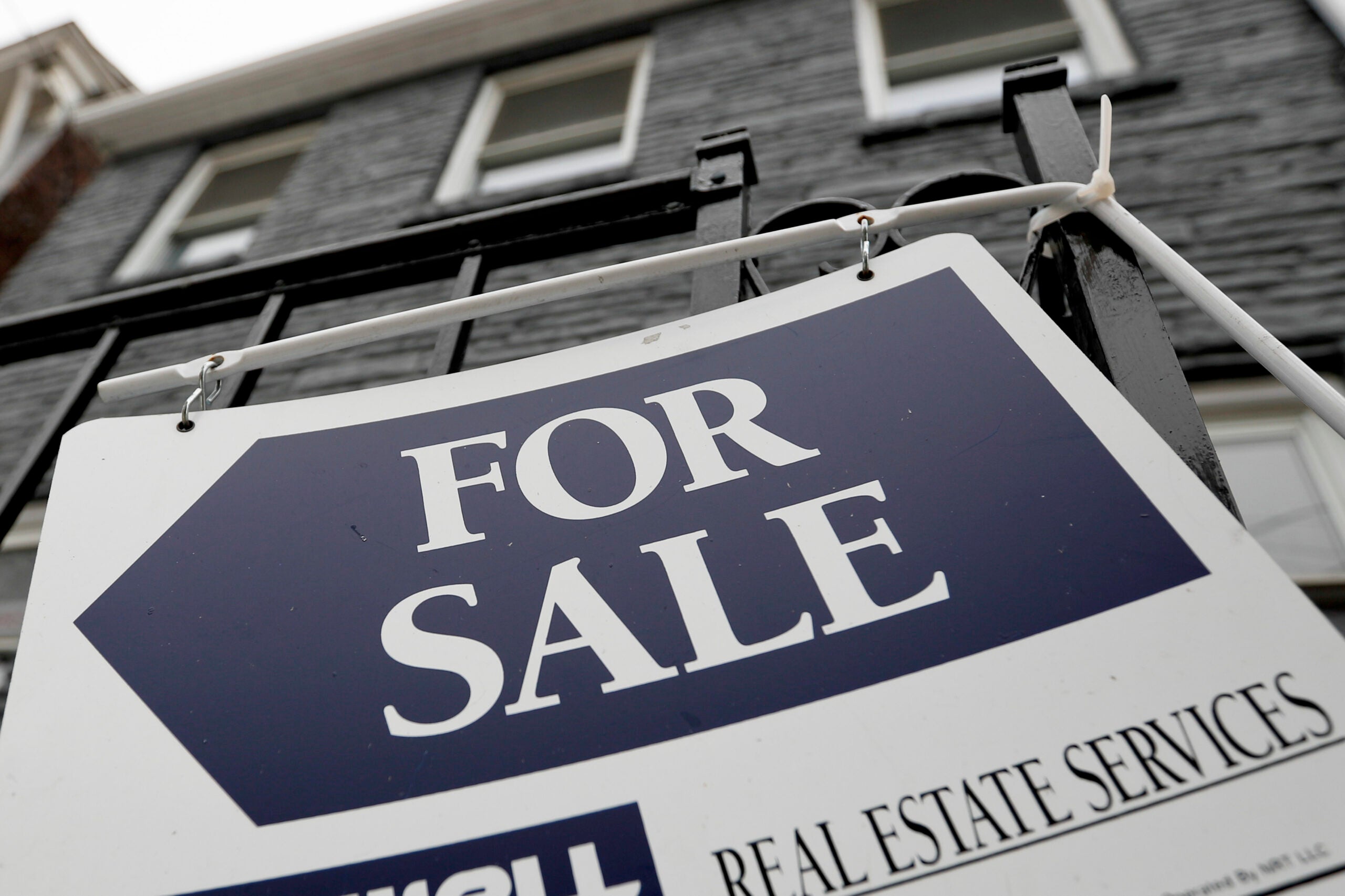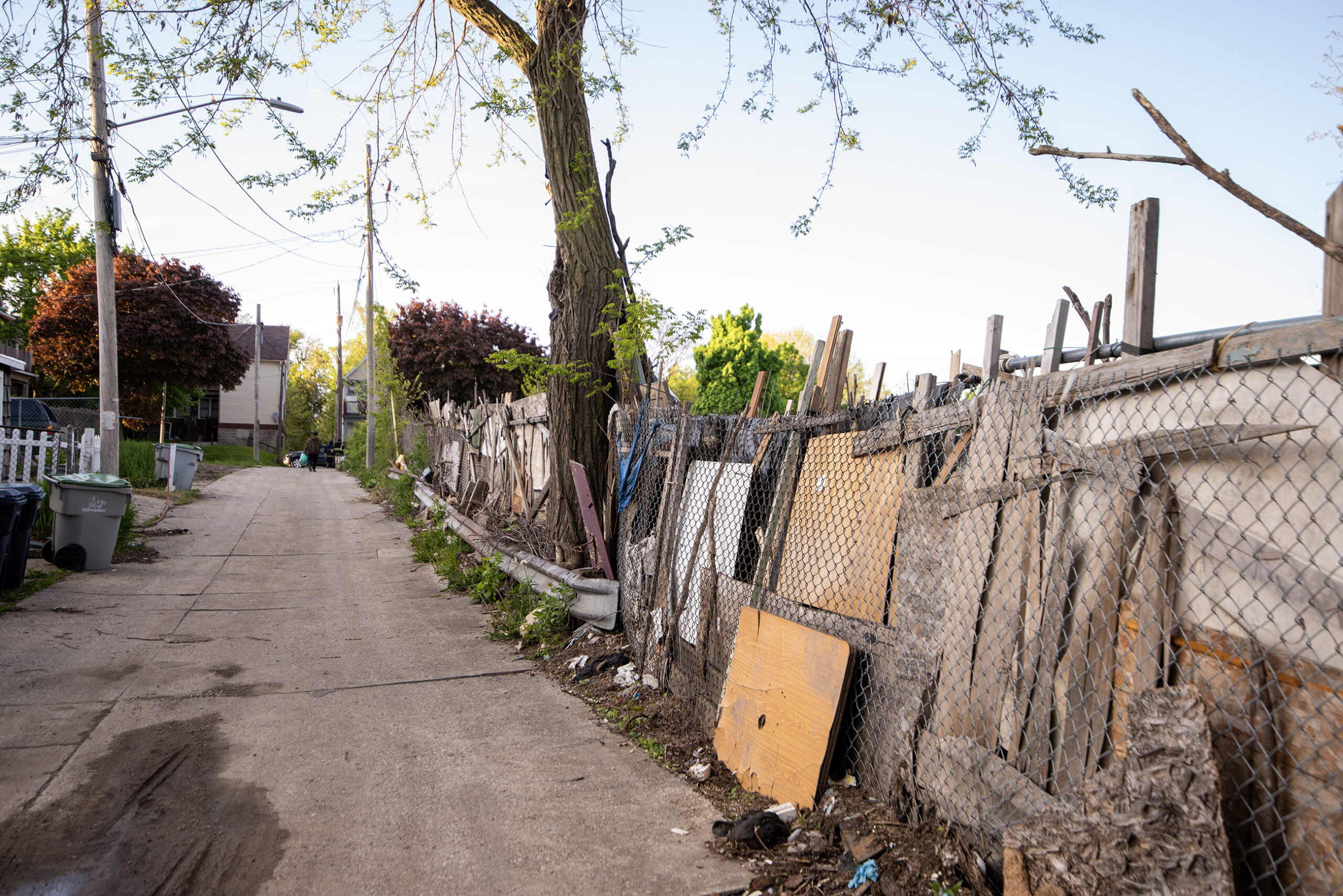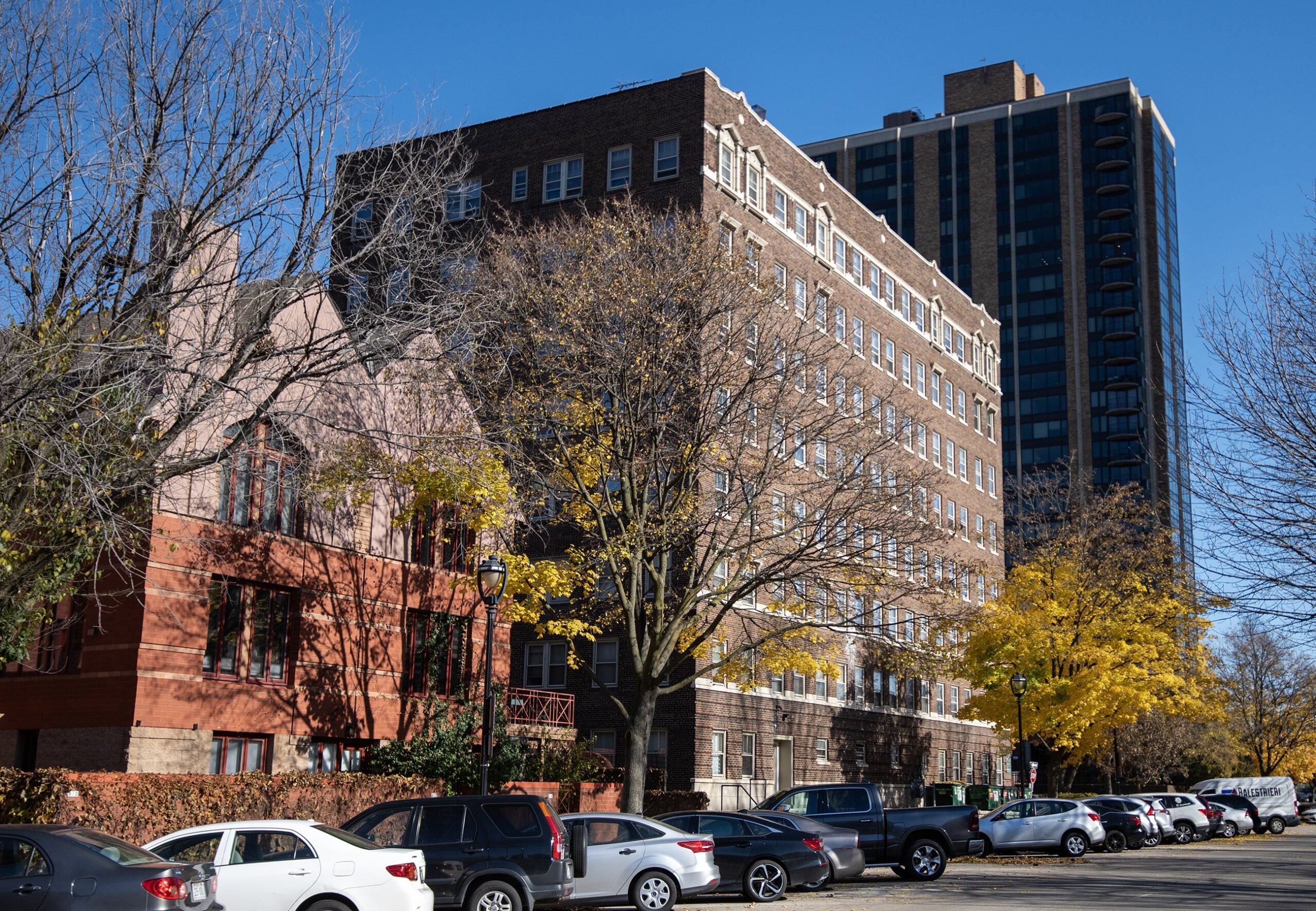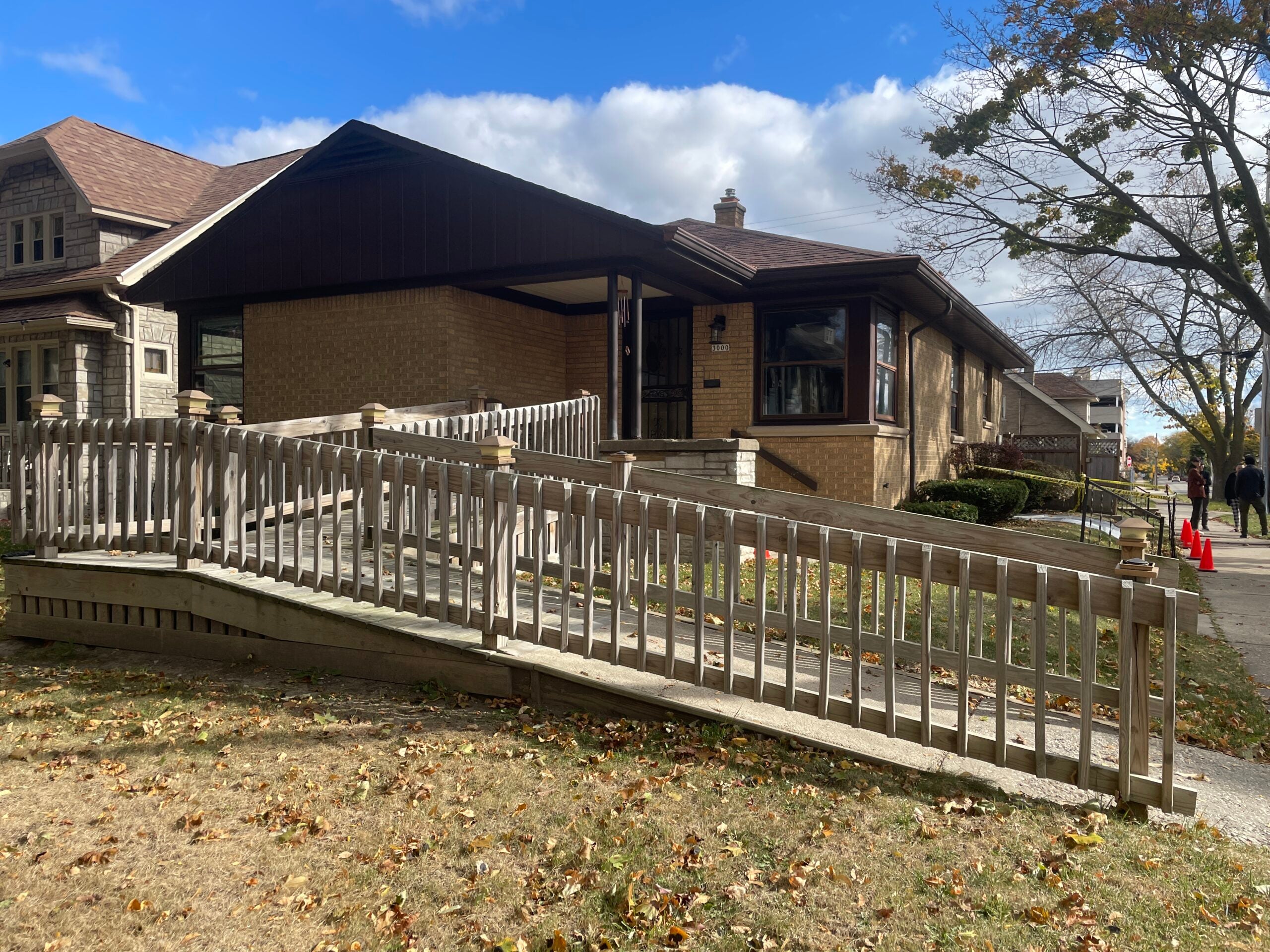Pandora Washington didn’t expect to own a house by the end of the day on Sept. 17.
She had a scheduled meeting with the rent-to-own homeownership program she’d been in for years. But her closing date kept getting delayed — there was always some missing document, some bank statement they needed.
She was getting discouraged. But when she went into the office, all its employees were waiting for her around the table, and Washington realized it was about to happen.
Stay informed on the latest news
Sign up for WPR’s email newsletter.
“I’m signing all the papers, and I feel myself finna get choked up,” she said. “And I’m telling myself, you better not cry!”
Facing a racial homeownership gap and ballooning housing prices, Milwaukee hopes to address both issues by making use of its real estate portfolio: hundreds of vacant houses. Under its Homes MKE program, it subsidizes developers to rehab the houses and sell them, at affordable rates, to new owners like Washington.
This can have wide ripple effects. Advocates say neighborhood stability, employment and racial equality stand to benefit.
A city spokesperson said most buyers earn between 70 and 80 percent of Milwaukee County’s median income.
For Washington, 56, the moment she signed the papers had been a long time coming. She’d moved to Milwaukee from Illinois in her early 20s and raised her kids in a house owned by the city’s public housing authority. When they grew up, the agency tried to move her into an older public housing development, far from the west side neighborhood she was used to.
“I was like, absolutely not. That’s going backwards,” she said.
She turned to the private market, but ran into a problem: she makes her living running a day care in her home. Landlords didn’t want it on their property.
Washington started seeing online ads for rent-to-own programs, and decided to give it a shot. One of them approved her application, and she soon found her current home.
Before she moved in, the white duplex with brown trim was abandoned. In Milwaukee, many of the vacant homes that have fallen into the city’s hands were built over a century ago, then left behind by white people moving to the suburbs and bought by absentee landlords. Those who didn’t pay property taxes lost their properties to the city.
For Washington, the day she signed those papers marked the first time she had ever lived in a house owned by herself or her family. She said she still can’t quite believe it.
“I really did it,” she said.
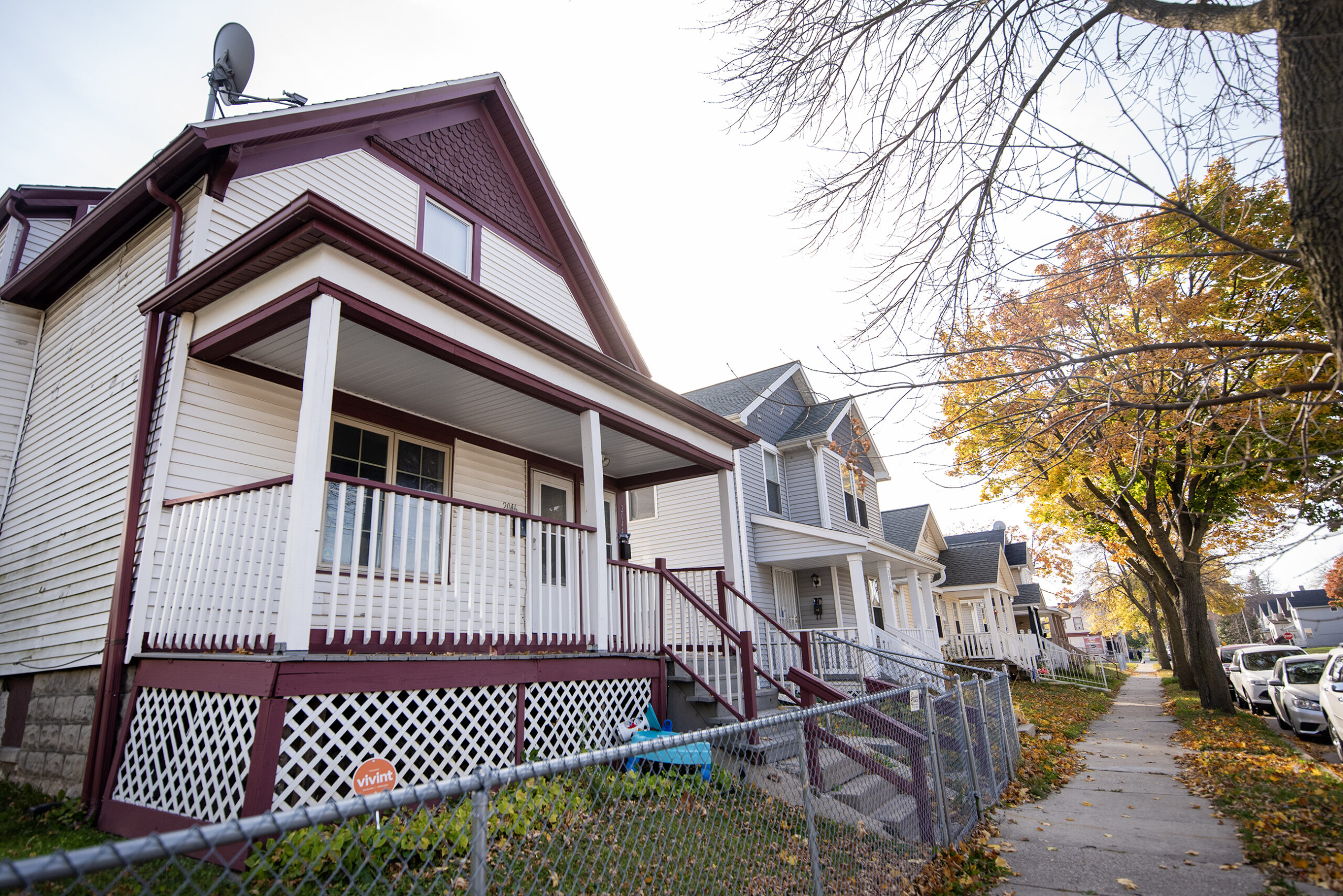
City seeks to boost homeownership
For the city, there’s also a pragmatic side to empowering new property owners like Washington. Abandoned properties don’t pay property taxes. Homeowners do.
“We need these properties to get back into productive use so they can contribute to paying for all the services that are so important to city residents,” said Lafayette Crump, Milwaukee’s commissioner for city development, which runs the Homes MKE program.
Homes MKE has been paying to restore over 100 vacant houses in the city’s portfolio since April 2023.
Essentially, it gives vacant houses to a preselected pool of local developers, subsidizes a portion of renovation costs and requires the houses be sold to people planning to live there themselves.
Crump argues the program can have broad ripple effects. Per city and U.S. Census data, vacant properties are concentrated in neighborhoods where most people rent from landlords. Often it’s the landlords who forsake the properties, charging rent even while skipping property tax payments. And with nonlocal, corporate landlords, Crump said there are even more risks.
“When you have out-of-state landlords, there is a stronger possibility that they will engage in predatory practices,” Crump said.
Deed restrictions placed on Homes MKE houses legally require buyers to live in them for at least five years, or sell them to others planning to do the same. That’s aimed at preventing landlords from immediately buying them up.
Crump said owner-occupiers are a better bet for creating safe and clean communities, and more likely to keep city officials accountable to their concerns.
“There is just a stronger likelihood that those individuals are really going to be committed to that specific neighborhood,” he said.
Homes MKE is funded by $15 million in federal pandemic relief funds allocated to Milwaukee by the Biden administration. When that money runs out, Crump said the private sector, philanthropy and other government funds will have to step in to keep some version of it going.
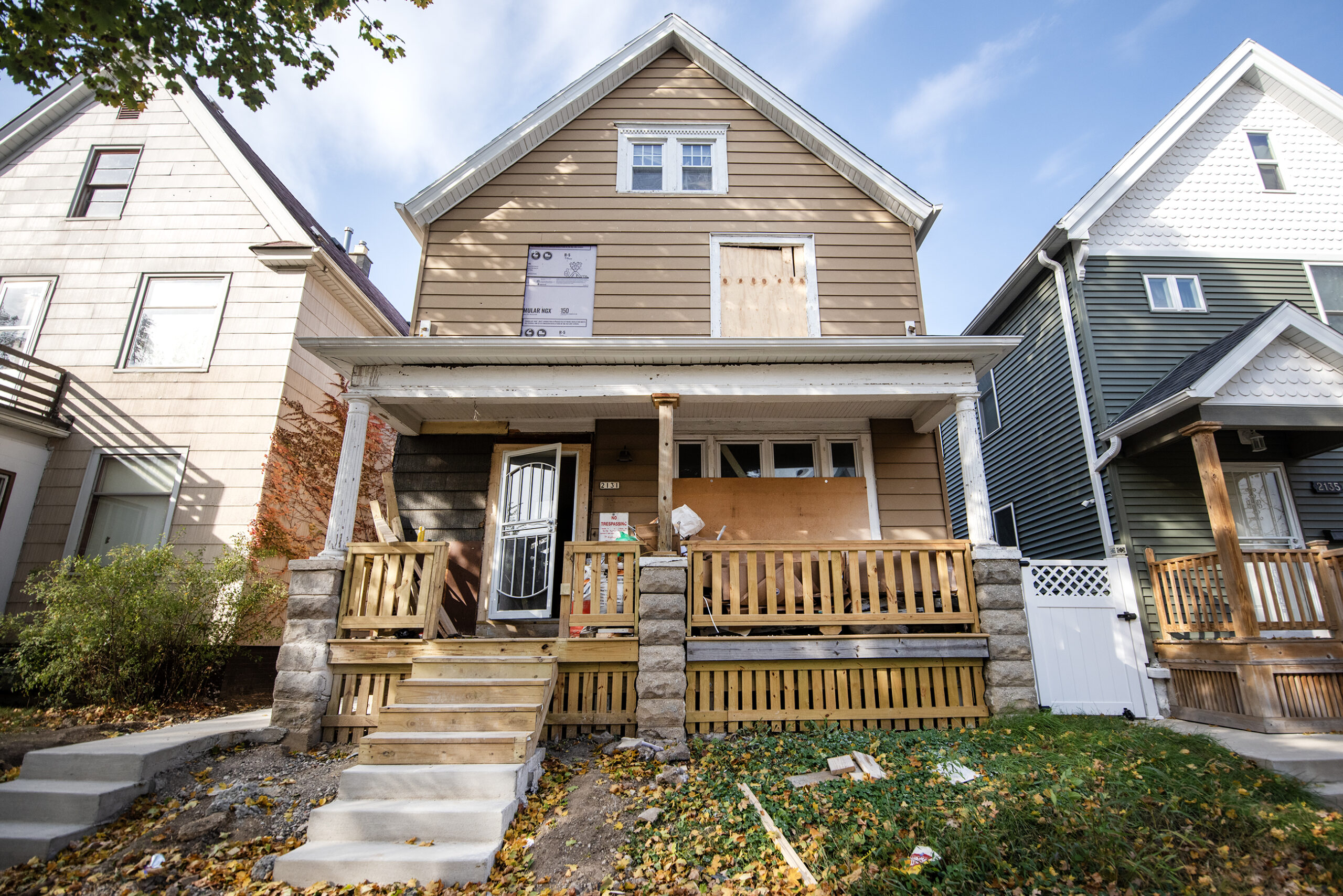
Wide racial disparities
Since Milwaukee’s vacant houses are concentrated in majority-Black neighborhoods, Homes MKE rehabs could chip away at the city’s dramatic racial homeownership gap. According to census data, 54 percent of Milwaukee’s white residents own the houses they live in. For Black people, it’s half that, 27 percent.
Rampant foreclosures by lenders during the 2007-08 financial crisis exacerbated that inequality. But Teig Whaley-Smith, chief executive of the Community Development Alliance, believes its foundation was laid long ago.
“Ninety-five percent of the single-family homes that were built in Milwaukee were built prior to 1968, when it was still legal to discriminate against Black and Latino families,” he explained, referencing the year the Fair Housing Act was signed. “And that’s exactly what people did.”
“They didn’t sell them to Black and Latino families when they moved on to bigger homes, they sold them to investors or kept them as rental,” he said.
Whaley-Smith’s nonprofit attacks the homeownership gap on many fronts, coordinating housing policy among residents, city government, private developers and philanthropists.
It has helped start a fund that buys on-sale homes before corporate landlords can, then sells them to new homeowners at affordable rates. It’s also raised money to increase the capacity of local homebuyer counseling and down-payment assistance programs.
Now it’s refocusing from rehab to new construction, for two main reasons: Milwaukee’s house prices increased 60 percent faster than the national average last year, and Homes MKE has siphoned off the city’s most salvageable abandoned houses. There are very few affordable rehabs left.
“Those opportunities don’t exist anymore, which is why we have to focus even more on new construction,” Whaley-Smith said.
The Community Development Alliance is partnering with the city to jointly finance dozens of affordable new houses on vacant lots, some on the same city blocks as Homes MKE rehabs.
The suite of public policies may be working: A 27 percent Black homeownership rate is low, but according to census data, it’s an increase from 25 percent in 2020, after plummeting from 34 percent in 2010.
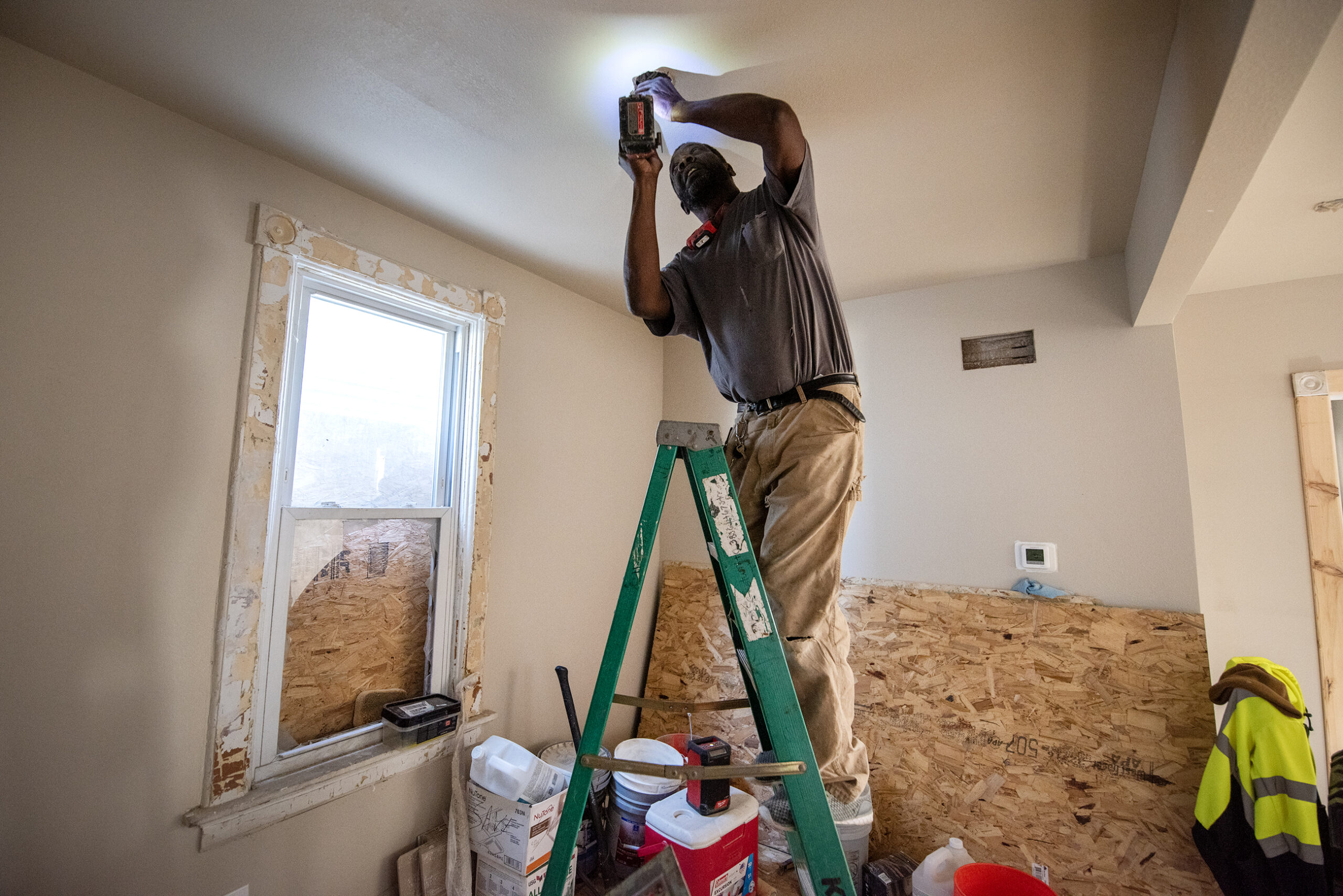
On the ground, progress takes a village
On the ground, Carl Quindel measures progress nail by nail. He’s the director of Strong Blocks, the company that sold Washington her house, and is one of Homes MKE’s developers.
At a vacant house rehab at 27th and Vine in Milwaukee’s Midtown neighborhood, Quindel called Homes MKE an “investment.”
“Everybody has said this home is worth zero, or less than zero,” Quindel said. He said developers and the city are trying to flip the script to “say this is actually valuable, our neighborhood is valuable, our neighbors are valuable, and this home is valuable.”
Quindel, who is white, grew up on the majority-Black north side of Milwaukee, and only ever left for college. He spoke fluent Spanish to a pair of men working on the stairs.
As belt sanders whined from the porch and hammers echoed through the halls, Quindel explained that his work draws on a web of relationships — contractors who know a guy who knows a guy. Completing a project takes patience for the challenges that come up in his team’s lives.
“You just walked through a house of people working — those are all human beings,” he said. “There’s things going on in their life. People die, people have hardships, trauma, chaos; the neighborhood — you have theft, you have vandalism.”
It was Quindel’s stint working alongside “a lot of handy people” in the trades that sparked his idea for Strong Blocks.
“(They were) so much handier than me, so much more capable,” he said. “I want to switch hands with these people — why aren’t they homeowners?”
Strong Blocks sells its rehabs to aspiring homeowners who otherwise would not qualify for mortgages, structuring payment plans around their needs. Quindel says Homes MKE allows him to offer his customers a different class of house. Developers can build new in Midtown, but nothing as large as the house Quindel’s crew is working on. Only small, inexpensively built houses would be within the range of most locals’ financial means.
Quindel said his Homes MKE rehabs have received between $60,000 and $150,000 from the city. It’s a win-win. Without the rehabs, he said the city would spend upwards of $30,000 on demolition anyway, and collect no property taxes.
“I’m not trying to throw things out,” he continued. “I’m trying to save everything.”
That includes historic wooden trim, bay windows and a garage, which combine to make a house usually only available in high-income, gentrifying parts of Milwaukee. Quindel values those historic elements.
“I just imagine sometimes what the city would’ve been like in 1890 or 1900, 1920,” he said. “It probably was incredible, just to witness all these people building at one time.”
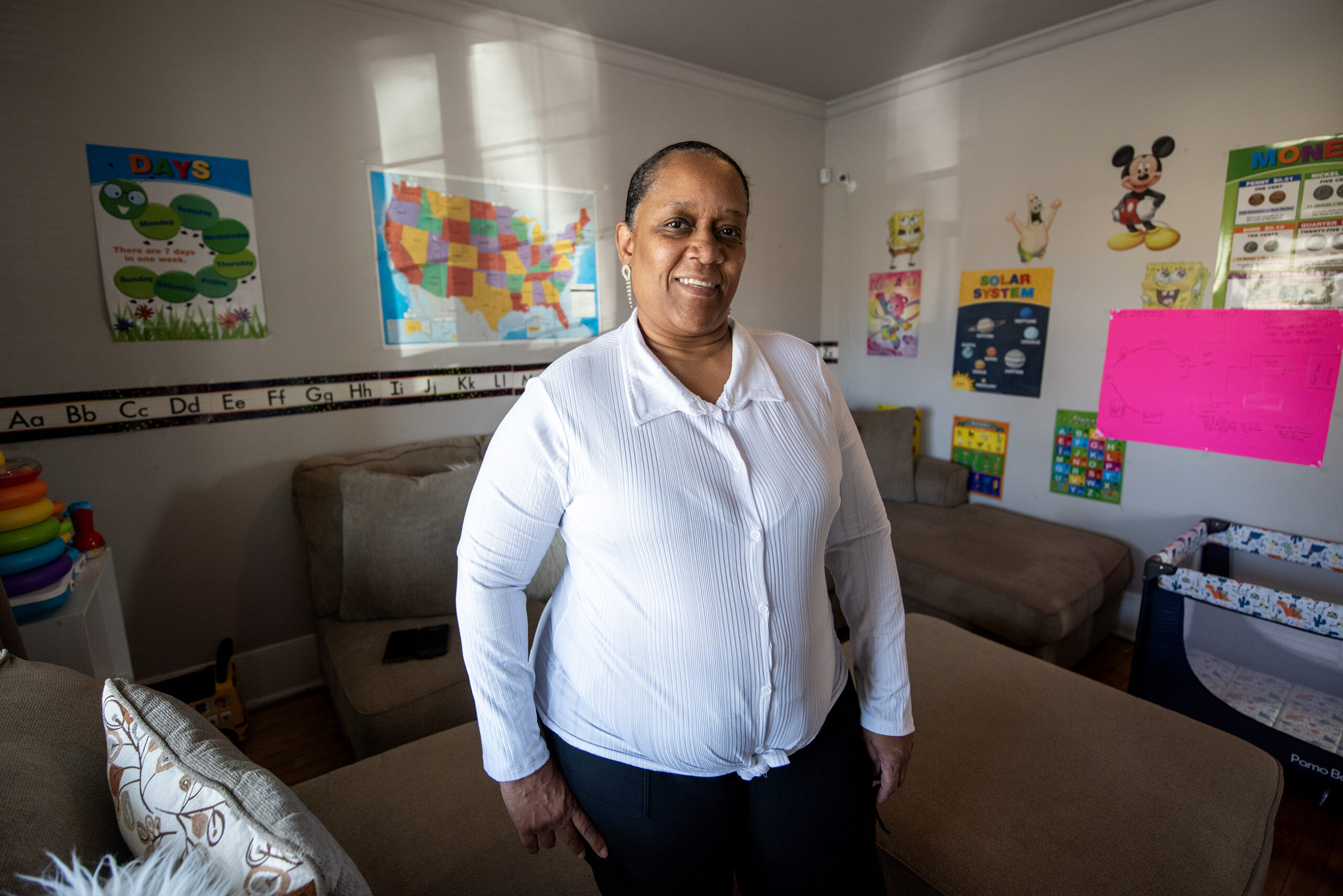
Change from renting to owning means a lot
After decades of landlord neglect and vacancy, Homes MKE’s contractors are drilling and hammering the life back into those historic houses. Though construction costs forced the city to bump its original goal of 150 houses down to 120, progress is steady. Twenty-six have been renovated and sold, and six more are on the market. Thirty-five are under construction.
Each completed house lets someone have an experience like Pandora Washington’s, who rented her house for years, but says owning it feels different. She hopes she sets an example to her children.
“I want my kids to be like, ‘OK, my mama did this, so I know I can do it,’” she said.
It was a special occasion, something to celebrate. The night she signed the paper, Washington took herself out to Applebee’s, one of her favorite spots.
“It’s still unbelievable,” she said.
The realization hits her whenever she gets up in the morning. She’s planning to redo her floors to make it feel even more like home. She wants to take a well-earned break from day care work — years of 16-hour workdays caring for toddlers.
But even if the fact the house is hers hasn’t fully sunk in yet, Washington is clear about what she feels is the difference between renting and owning.
“You pay rent all your life, and the only thing you own is the stuff that’s inside,” she said. “When you own something, it just feels great. Because you don’t want to work all your life and don’t have nothing to show.”
Editor’s note: This story has been corrected to note that Strong Blocks is a for-profit company.
Wisconsin Public Radio, © Copyright 2025, Board of Regents of the University of Wisconsin System and Wisconsin Educational Communications Board.

